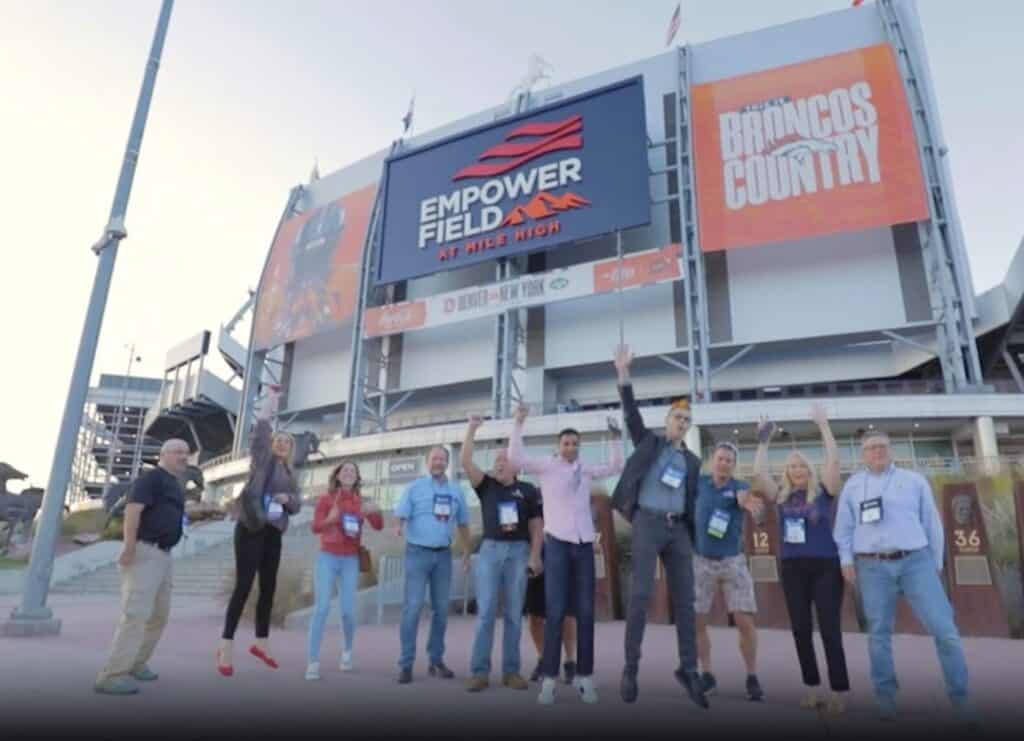Essestial questions to ask when hiring a videographer in Colorado

When it comes to hiring a videographer for an important event, the process involves more than just a simple phone call. Communication is key to ensuring that your expectations are met and that the final product aligns with your vision. One crucial aspect often overlooked is confirming who will actually show up to film your event. Here, we delve into the key considerations and questions you should address when hiring a videographer to guarantee a seamless and professional experience.
Confirming the Videographer
Ensure Direct Communication with Your Videographer
One of the most common issues clients face is the mismatch between the person they communicate with over the phone and the one who actually shows up to film the event. To avoid this, it is imperative to ask who will be filming your event during your initial discussions. This ensures that there is no confusion or miscommunication later on.
Direct communication with the videographer who will be present at your event allows you to establish a rapport, discuss your specific needs, and ensure that your vision is clearly understood. This step is crucial in making sure that both parties are on the same page.
Ask About the Videographer’s Experience and Style
Each videographer has a unique style and level of experience. It is essential to discuss and understand these aspects to ensure that their approach aligns with your expectations. Some key questions to consider include:
- How long have you been filming events?
- Can you provide samples of your previous work?
- What is your filming style? (e.g., cinematic, documentary, traditional)
- How do you handle unexpected situations or challenges during an event?
Understanding the Videography Process
Pre-Event Planning and Coordination
Effective pre-event planning is a cornerstone of successful videography. This phase involves discussing the event’s schedule, key moments to capture, and any specific requests you might have. Ensure the videographer understands the flow of the event and is aware of any critical elements that need to be filmed.
Questions to ask:
- How will you coordinate with other vendors (e.g., photographers, event planners)?
- What equipment will you use, and do you have backups?
Filming the Event
On the day of the event, the videographer’s presence and professionalism are paramount. They should arrive early, be well dressed and work discreetly to capture the essence of your event without being obtrusive. Discussing these details in advance can help set expectations.
Key points to discuss:
- What time will you arrive at the venue?
- Will you bring an assistant or second shooter?
- How do you handle audio and lighting challenges?
Post-Event Editing and Delivery
The editing process is where the raw footage is transformed into a polished final product. It is important to understand the timeline, the editing style, and any additional costs that might be associated with this phase.
Questions to ask:
- How long will it take to receive the final edited video?
- What is included in the editing process (e.g., color correction, sound editing)?
- Will you provide a highlight reel or full-length video?
- Can we request changes after the initial edit?
Ensuring Quality and Professionalism
Check Reviews and References
Before making a final decision, it is wise to check reviews and references. This can provide valuable insights into the videographer’s reliability, professionalism, and the quality of their work. Look for consistent positive feedback and any recurring issues mentioned in reviews.
Understand the Contract and Payment Terms
A clear and detailed contract is essential to avoid any misunderstandings. It should outline the scope of work, payment terms, cancellation policy, and any other important details. Make sure you understand and agree with all the terms before signing.
Important elements to include:
- Description of services provided
- Payment schedule and total cost
- Cancellation and rescheduling policy
- Ownership and usage rights of the footage
Discuss Contingency Plans
Even with meticulous planning, unforeseen circumstances can arise. It is crucial to discuss contingency plans with your videographer to ensure they are prepared for any eventuality.
Questions to consider:
- What is your backup plan if you are unable to attend the event?
- Do you have backup equipment in case of technical issues?
- How do you handle weather-related challenges if the event is outdoors?
Building a Strong Working Relationship
Establish Clear Communication Channels
Open and ongoing communication is vital throughout the planning process and on the day of the event. Establish clear communication channels and make sure the videographer is easily reachable.
Suggestions:
- Schedule regular check-ins leading up to the event.
- Use email, phone calls, or messaging apps for quick communication.
- Ensure you have the videographer’s contact details for the day of the event.
Set Expectations and Provide Feedback
Clearly communicate your expectations regarding the final product and any specific moments you want to be captured. Providing feedback during the editing process can also help ensure the final video meets your expectations.
Considerations:
- Create a shot list of must-have moments.
- Discuss any creative ideas or themes you want to incorporate.
- Provide feedback promptly during the revision phase.
Hiring a videographer involves more than just finding someone with a camera. It requires careful consideration of their experience, style, communication skills, and professionalism. By asking the right questions and establishing clear expectations, you can ensure that the videographer you hire will capture your event beautifully and create a video that you will cherish for years to come. Remember, effective communication and thorough planning are the keys to a successful videography experience.






